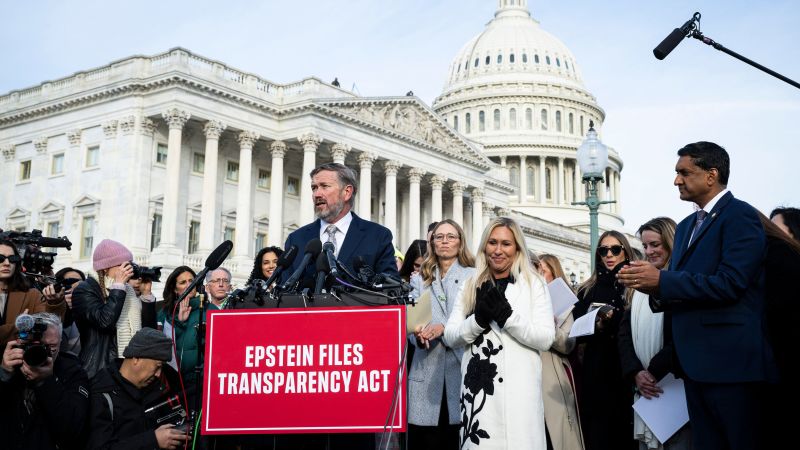The Jeffrey Epstein saga continues to unfold with a mix of drama, politics, and intrigue, captivating the attention of the public and politicians alike. Amidst mounting pressure, President Donald Trump has signed a bill directing the Department of Justice to release the full investigative files regarding Epstein and his associate Ghislaine Maxwell. This significant step comes after the bill received overwhelming support in Congress, highlighting the bipartisan interest in shedding light on this dark chapter.
The move to release the files has been embroiled in controversy and speculation. Questions regarding the integrity of the released information have been raised, with concerns about potential redactions or alterations prior to public disclosure. With strict guidelines in place to protect victim identities and prevent withholding of information for political reasons, the public eagerly awaits the contents of these documents.
The bill mandates transparency and accountability from the Department of Justice, setting a timeline of 30 days for the release of the files. These documents are expected to contain a vast array of information, including investigative reports, flight logs, individuals connected to Epstein's crimes, and more. The goal is to provide a comprehensive view of the investigations and shed light on the extensive network surrounding Epstein.
President Trump's wavering stance on the release of these files has been scrutinized, with his eventual approval of the bill seen as a significant shift. The bill's passage through Congress has highlighted the complexities and political dynamics at play, with both parties navigating the implications of the disclosures. Trump's personal connections to Epstein have further added a layer of intrigue to the unfolding events.
The potential revelations within the files have sparked speculation about their impact on various public figures, including Trump and other prominent individuals associated with Epstein. Concerns about redactions, delays, or interference in the release process have fueled uncertainty and raised the stakes for transparency and accountability.
As the countdown begins for the Department of Justice to make the files public, the spotlight intensifies on the oversight mechanisms in place to ensure a thorough and unbiased disclosure. The role of congressional committees, legal challenges, and public scrutiny will be crucial in overseeing the process and holding accountable those responsible for the investigations.
The Epstein saga, with its web of connections and allegations, continues to captivate the public imagination and test the strength of the justice system's commitment to transparency. The release of the investigative files represents a pivotal moment in the quest for truth and justice in a case that has far-reaching implications for both the political landscape and public perception. The survivors of Epstein's abuse, along with the broader public, await the unfolding of this critical chapter in the ongoing Epstein saga.



